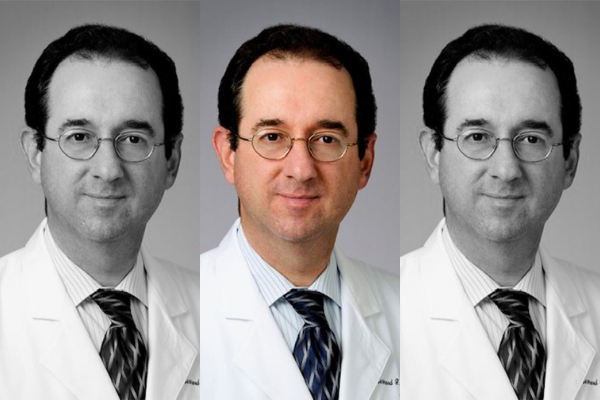March 16, 2022
The Garabed Eknoyan Award honors those dedicated to making the lives of kidney patients better through their research. It’s their tireless efforts and hard work that move the entire kidney disease field forward.
This year, we are proud to honor one such dedicated individual, Bernard Jaar, MD, of the Nephrology Center of Maryland and Johns Hopkins University, Baltimore. He will be presented with the award at the NKF 2022 Spring Clinical Meetings in Boston.
What are the Spring Clinical meetings?
NKF’s Spring Clinical Meetings bring kidney disease professionals from all over the world together to discuss and share new findings. The event aims to educate all healthcare providers and encourage improvement in patient health outcomes. This year attendees will have the option to attend in person or virtually. Learn more or register.
Honoring Dr. Bernard
Dr. Bernard’s work has been invaluable to the kidney community and spans many areas of the nephrology world. Just a few of his accomplishments include writing or cowriting over 200 peer-reviewed manuscripts, working as a nephrologist, and improving the Kidney Disease Outcomes Quality Initiative Guidelines (KDOQI).
“It is an extraordinary privilege to be recognized with this award in honor of Dr. Eknoyan, a giant in the field of nephrology.” Dr. Bernard said, “I am very thankful to the NKF for this recognition. I would like to dedicate this award to my mentors…I am proud of my contribution to the mission of the NKF, supporting my local affiliate, NKF of Maryland and Delaware, but also of my work with the KDOQI group and the NKF Education Committee. I am very fortunate to work with such dedicated professionals, who work tirelessly to help improve the lives of patients with kidney disease.”
What are Kidney Disease Outcomes Quality Initiative Guidelines?
The NKF-KDOQI Guidelines aim to improve the diagnosis and treatment of kidney disease through peer-reviewed, evidence-based reports. Updates are initiated when enough new, high-quality evidence becomes available to change current recommendations
“The KDOQI guidelines have had a significant impact on clinical practice, research, and public health worldwide,” said Kerry Willis, Ph.D., and Chief Scientific Officer, NKF, “and have led to a better understanding of the prevalence of chronic kidney disease and the best practices for treatment.”
How are new guidelines established?
It generally takes around 18-24 months from development to manuscript submission to the American Journal of Kidney Diseases (AJKD).
- Guideline development: This stage is the most intensive and requires work from many different individuals and agencies. Evidence is collected and reviewed to produce the first complete draft of the guideline. Each procedure is published along with a rationale, including a summary of relevant available evidence (and gaps in evidence) and explaining potential benefits and risks.
- Internal review: Once the guideline is signed off, the KDOQI Leadership and the National Kidney Foundation Scientific Advisory Board review the work. Reviewer comments are collated by KDOQI staff and sent to a Work Group, a diverse multidisciplinary group of healthcare professionals, for discussion and possible edits.
- External review: The document is sent to registered reviewers and publicized to other individuals and groups interested in the topic. Comments are collected and reviewed by the Work Group. The final rewriting of the guideline document is based on the public review comments.
Learn more about the guideline process.
Help shape KDOQI
Are you a professional in the field of nephrology? Please help us identify future topics by completing the below poll. We greatly appreciate your participation and welcome feedback for future topics! Start now.









